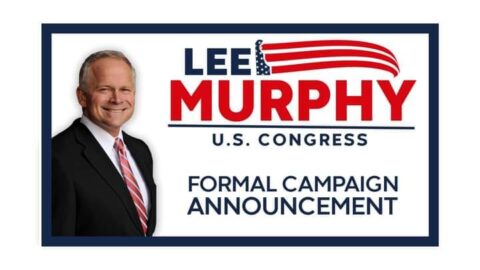Back again for more dollops of bloggy goodness as we wrap up the unofficial kickoff to summer. As always, these are items meriting anything from a couple sentences to a handful of paragraphs but fall short of their own blog post.
Rethinking the way we react
This is the subject of a short essay I received in my e-mail from Delaware state Rep. Bryan Shupe, who also does the Delaware Live news website. One thing that stuck out at me is that he seldom leaves comments on social media, noting:
This rethinking of my own reactions to social media has led me to rethink the way I interact with family, friends, and individuals in my community in person. Instead of proactively searching for opportunities to “spill tea”, like the comments section of a social media post, I look for ways to introduce positive things going on in our local community. I listen to what my neighbors enjoy doing and connect them with resources to help others.
“Rethinking the way we react,” Bryan Shupe, March 29, 2021.
I don’t leave a ton of comments on social media such as what I think Bryan is talking about, but when I do they tend to be lengthy. It’s hard to tiptoe on a line between making a point and being argumentative, especially when the opposition leaves or repeats tired talking points that exist more as conventional biased wisdom than reality.
But I look at social media as a way to advance my larger point as well as enhance whatever brand I have (since much of it is based on my writing.) Yet I have fun with it as well – after all, how much can you enjoy life if you’re serious all the time?
A strategic fade to the background
Back in April I discussed the rise of the Patriots for Delaware and what was happening to the 9/12 Delaware Patriots. At that point, the latter group was considering its options given an impending change in leadership.
Earlier this month I received an e-mail update which read:
We recently met to discuss the future of the organization and by majority vote, we support continuing this organization while supporting other fine groups such as “Patriots for Delaware“, “Delaware Gun Rights“, DSSA, TWAW Southern Delaware on Facebook, First State IOTC and many other conservative/constitutional groups.
“Happy Mothers Day” e-mail, 9/12 Delaware Patriots, May 9, 2021. Corrected from original to add TWAW link.
Reading on, they revealed that the twice-monthly meetings would remain on hold for the time being, “but periodic gatherings will be announced as they are planned.” However, I haven’t heard of any yet – no surprise since it’s only been a few weeks. I imagine they will be following the groups they mention around the state.
Taking up the slack in some respect, the Patriots for Delaware are restarting what was about a weekly gathering later this month after a short hiatus of their own. I bring this up because I saw they were planning another visit to Range Time on June 22nd and I may have to do double duty that night by checking that out and writing my weekly piece for The Patriot Post.
Defending the TEA Party
To be honest, this is more of an academic point than anything, but there are others like me who try to set the biased historians straight (sometimes by writing their own version.) One of them is Michael Johns, an original TEA Party leader who keeps his Twitter nice and sharp on defense, including this one.
Just because there was a narrative set by the mainstream media doesn’t mean they have the truth. If anything, there is more racism in the little finger of Critical Race Theory c. 2021 than there ever was in entire body of the TEA Party c. 2009-10.
From what I found in two-plus years of research and writing Rise and Fall – plus a decade of living it – the TEA Party couldn’t care less if their followers were white, black, brown, yellow, red, or purple with green polka dots. Their goals were simple: limited government with minimal taxation, and those who try to inject racism into the conversation are out-and-out frauds. So I have to give a shout out to Michael for sharing that with me!
Paging Captain Obvious
You know I usually like me some Bobby Jindal and Erick Erickson. I’m going to get to the latter in due course, but Jindal does better than most in summing up the point that Joe Biden isn’t the moderate people claimed he was. Indeed, he was a Trojan Horse.
Yet, the sad part (and this peripherally relates to the TEA Party section above, too) is Jindal wrote this before we learned that the GOP has lost a key argument.
(Biden) has adopted a lower public profile, contrasting himself with Trump’s outsized presence, and enjoys a favorably disposed media. Given those factors, Biden is using his political capital to advance a multi-trillion-dollar infrastructure bill. While there is strong bipartisan support for investments in roads, ports, and bridges, the president has expanded the definition of infrastructure to include Medicaid and Community Development Block Grants, child-care facilities, public schools, community colleges, workforce training, and pro-union restrictions on employer activities. As Rahm Emanuel famously said in 2008, “You never want a serious crisis to go to waste.”
“Biden’s Trojan Horse,” Bobby Jindal, National Review, May 5, 2021.
I say that because, instead of using non-governmental means to encourage states to spend the money on their own infrastructure needs, the GOP is countering with a $928 billion infrastructure package of their own – never mind the trillions in debt we already owe. It’s infuriating to be reminded that neither side really cares about limited government anymore. And it’s no wonder why most speak of the TEA Party in the past tense.
Some advice on pro-life arguments
This doesn’t require a lot of comment, but it is important in engaging an audience. The group Created Equal has released a pair of videos that illustrate how a typical argument goes, and how best to counter the objections put up by those who believe abortion is necessary because “life is hard.”
One piece of advice to take to heart:
When people are hateful toward us, we remind ourselves that they don’t really know us at all. Had they encountered us shopping at Wal-Mart, they wouldn’t have treated us so poorly. The difference is during outreach they can’t ignore our faith in God and conviction against abortion. This is what they hate. Remembering this, we don’t have to get personally offended. It’s not about us, after all.
“One Truth Will Help You Keep Your Cool,” Created Equal e-mail, April 27, 2021.
This actually goes in well with the social media commentary above. People seem to have a lot more bravado and a lot less tact when they hide behind a keyboard. I try not to write or say anything online that I would regret in real life, although political opinions shouldn’t count in that regard. Not that I’m going to apologize for what I believe, but it seems these days too many people have thin skin.
A batch of tough love
It’s been a couple months now since this came out (just before Easter) but I’ve kept this piece by Erick Erickson around because it is a good reminder of just how blessed we are to be in America compared to other places around the world.
Christians in America have gotten soft. We’ve turned the nation into an idol to be worshiped. We’ve become so convinced by the “shining city on a hill” rhetoric we think “It can’t happen here,” regarding persecution of Christians. We’ve turned the American ideal of liberty into an idol we worship. The religious liberty in the first amendment is meant to protect the religious as they seek to draw people to them. But the world demands instead that the first amendment be used to draw the religious to the world and silence those who refuse to go along for the ride. In making an idol of our democratic freedom, the irony is that many evangelicals in America are abdicating the use of it.
What Christians in the United States of America, who’ve had it pretty easy for a long time in the USA, have forgotten or never learned is that the world is deeply hostile to the things, and people, of God. Remember, one thousand nine hundred eighty eight years ago, the world chose to spare a criminal and crucify God himself.
“The World is Team Barabbas,” Erick Erickson, April 1, 2021.
But more importantly, Erickson makes the case that Christians are going to be perceived as wrong-headed in their support for morality based on the Biblical admonitions, correctly saying, “The world is deeply hostile to the Christian idea of loving the sinner, but not the sin.” The world equates loving the sinner with accepting the sin, and Christians shouldn’t go there even though it may create an awkward situation – especially this month.
I think that once I get a side hustle payment this month I’ll invest in his enterprise with a subscription. You should too.
Whose high standard?
In the category of “bloggers and blogging,” every so often I get a solicitation like this “sponsored content enquiry”:
Hello
Our editorial team are currently writing content on behalf of a major industry-leading client seeking to grow their digital presence via quality channels that offer a valuable resource to their audience.
Your website monoblogue.us offers the high standard we are pursuing on behalf of our client and we would appreciate the opportunity to create a piece of sponsored content for your readership.
Our content is created to a high standard, and in a way that will genuinely resonate with relevant audiences. We will include images and citations in order to ensure that the content offers genuine value to your site, and a natural fit for readers of monoblogue.us.
If you are interested in publishing sponsored content on websites or blogs owned by your company, then please send us more details pertaining to:
(batches of crap I barely understand)
We look forward to your response.
Some media company that connects to over 20,000 blogs – or so they say.
Really, you’re not looking forward to my response.
When I think of outlets like this, I think of those people who put the annoying ads on websites like “One Cup Before 10 a.m. Burns Belly Fat Like Crazy – No Exercise Needed.” I realize people have to pay the bills, but over the fifteen-plus years of doing this hobby/obsession I’ve come to realize that, since blogging isn’t going to make me independently wealthy, the least I can do is not lose any sleep over it. And “sponsored content” that I don’t write isn’t the way to do that.
(Now if someone wanted to sponsor my “Shorebird of the Month” posts, like the one that comes out Thursday, that’s a different matter.)
But I’m really not interested in having a forum for someone whose first language isn’t English and can bear being paid a nickel for a thousand word column on some arcane subject of their choosing to write for my site. I’ve only had two other co-writers (by my invitation) and they were both well-versed, fascinating people.
So I think I’ll pass on the offer. Feel free to rattle the tip jar if you have funding to give me.
Programming note
I look forward to doing Shorebird of the Month – this may be one of the toughest pairs of decisions I’ve had since adopting the monthly format four years ago. But the winners will be deserving ones.
After that, my June docket is clear although I’m sure something will strike my fancy. This just cleared about 2 1/2 months of deadwood out of my e-mail so I’m happy about that.








